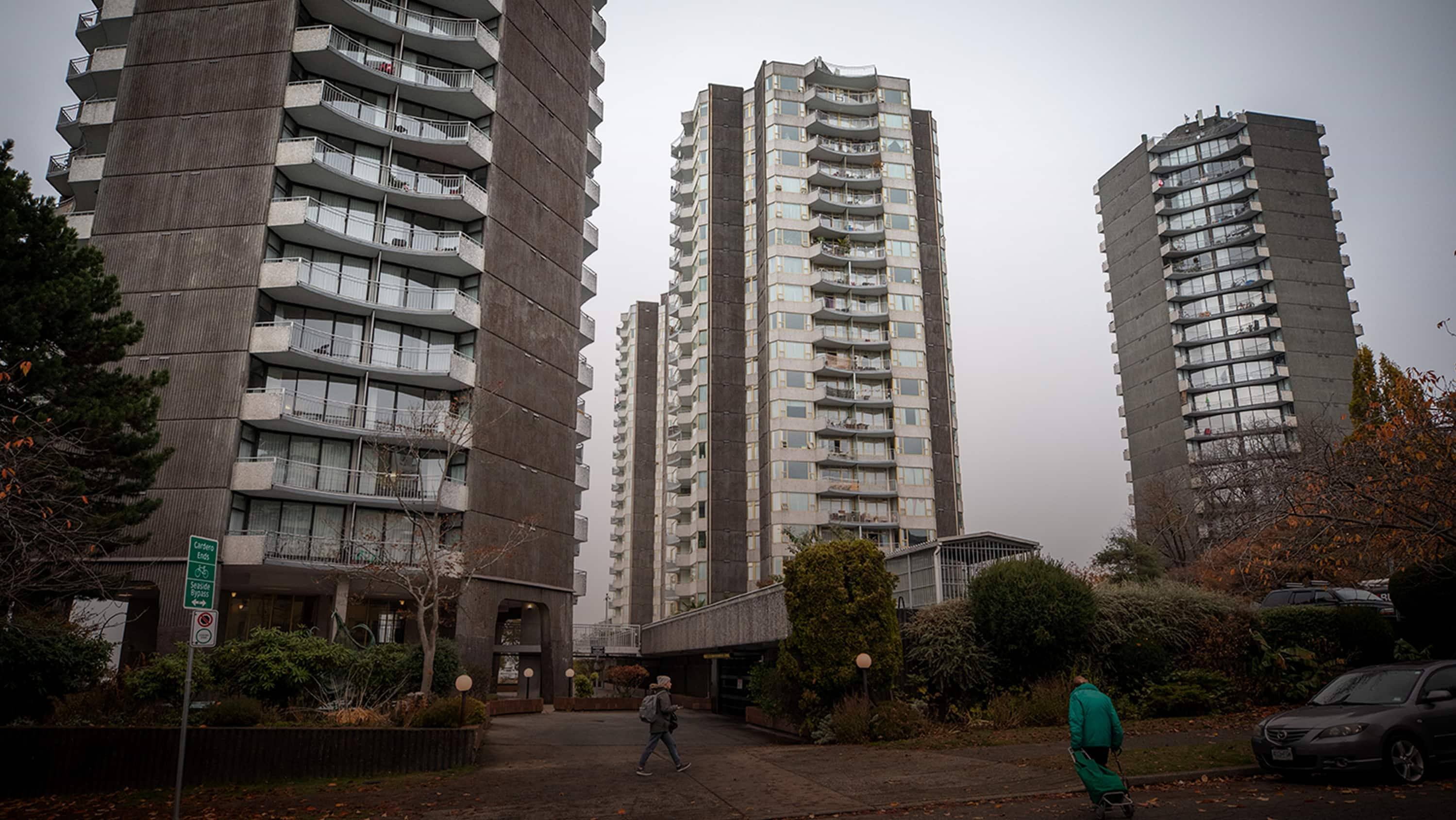Many Canadians are locked out of the housing market. Why aren’t they taking to the streets? | CBC News
Striking tenants who are refusing to pay big rent increases in several buildings in Toronto’s west end say they’ve been flooded with support from across the country.
York South-Weston Tenant Union organizer Bruno Dobrusin said support for their rent strike has been “overwhelming.” Not only are people paying attention, but he said they’re interested in learning how to organize themselves.
“It’s a hopeful sign that people are rising up and fighting back,” said Dobrusin.
“We’re seeing that there is more and more demand for broader movements. But provincially or nationally, the question now is how can we support each other?”
Advocates like Dobrusin say Canadians shut out of the country’s tight housing market may be more likely to consider organizing as a way to push for solutions to the housing crisis.
While they say there’s an appetite for change that can make way for a widespread movement aimed at creating more affordable and accessible housing, there’s enough obstacles facing both organizers and residents to keep it from getting off the ground.
“Folks are seeing no change, no improvements year after year,” said Ricardo Tranjan, a political economist at the Canadian Centre for Policy Alternatives, a research group based in Ottawa.
Rents have been steadily increasing nationally since 2021 and hit a record-high last month. According to real estate research firm Urbanation, average asking rents nationally sat at $2,042 in June, passing the previous record set in November 2022.
“I think folks are starting to be more open to the notion that the missing link is not ideas, the missing link is not technical solutions. The missing link is the political will to make change and … it will require some pressure,” Tranjan said.
The average price for a rental home in Canada is up by 10 per cent since last year, and even cities known for lower rents, such as Montreal, are feeling the pinch.
Is a broad housing movement warranted?
While discontent may be brewing among precariously housed Canadians, that doesn’t mean new homes aren’t being built.
Data from the Canada Mortgage and Housing Corporation (CMHC) shows Canada has ramped up construction in recent years, including over 240,000 new home starts in 2022, just slightly down from the record-high 244,000 units started in 2021. Additionally, Statistics Canada data shows that from 2019 to 2021, housing stock growth outpaced population growth in Toronto and Vancouver, two of the hottest markets in the country.
But CMHC has said at the current pace of construction, Canada is still short on supply. It projects almost 19 million housing units will be added to the market by 2030 — but that’s3.5 million units short of achieving “housing affordability for everyone living in Canada.”

Mary Rowe, president and CEO of the Canadian Urban Institute research group, said it’s not necessarily how many units are being built, it’s about what kind, and where.
“The pattern of development has gone where the highest rate of return is,” said Rowe, pointing to a push toward single-family and detached homes when private developer housing took off. That mainly started after the federal government ended programs geared toward social housing in the 1990s.
It left a real deficit in affordable, family and supportive housing, along with different types of rental and ownership schemes such as co-ops, rent-to-own and shared ownership, she said.
“We’ve got to get smart here in Canada and figure out what are the interventions we need to keep a kind of balance and make that a healthy ecosystem that provides a wide range of choice.”
While embracing activism might not be everyone’s calling, Rowe said it makes sense some people will join social movements in order to be “engaged in the quality of our communities.”
“There are people with extraordinary frustration and people that have been disadvantaged by … the way the housing market has been driven for decades,” said Rowe.
“Now there’s a moment for all of us to look at how that needs to be corrected.”
What’s stopping people from getting involved?
While there may be an appetite for change, it’s not easily tapped into — both for residents and those looking to organize.

Alejandra Ruiz Vargas, a national leader with multi-issue advocacy organization Association of Community Organizations for Reform Now (ACORN), said the group has been focused on issues like housing, fair banking and internet accessibility since its inception in 2004.
It opened new chapters in Calgary and Waterloo, Ont., in the past year due to demand, she said, bringing their membership to over 140,000 nationally.
While they welcome the growth, Vargas said they’re still working within a system where many people are too burned out or busy to get involved, and actively feel “defeat” when it comes to their ability to make a difference in Canadian politics.
“Right now there are people that have to work three jobs to [make] ends meet. So what time do you really have to participate?”
Vargas said despite how bleak things may seem, it’s important to continue getting their message out.
“We’re going to continue fighting, we’re going to give our 100 per cent, we’re going to try our best,” said Vargas, pointing toward tenant information sessions, social media campaigns and door-knocking blitzes as examples.
We investigate the impact the current housing crisis is having on low-income Canadians, and reveal who is being shut out with no safe place to call home.
What does it take to build a movement?
Tranjan said having broader conversations about politicization, financialization and the lack of housing regulation might open the doors for more people to get involved.
“There’s actually folks trying to make things worse because they enormously benefit from the kind of money that they can make on the backs of tenant families right now,” said Tranjan, pointing toward weakening rent control and tenant protections as examples.
“We need to have that grown up conversation — stop pretending that supply and demand is what explains everything.”
For Dobrusin, the fight continues locally by encouraging people to talk to their neighbours, sparking the idea of collective action.
That’s what he and other organizers hope to do on Saturday. Tenants, joined by supporters, trade unions and community organizations, are marching down Toronto’s Weston Road to local MPPs and MPs offices to call for fair rent and landlord accountability.
“Whether you’re in a rent strike or not, it’s important to join those forces,” he said.
“Hopefully from that we’ll be able to build something bigger.”
For all the latest business News Click Here



